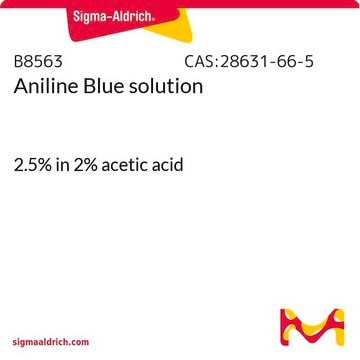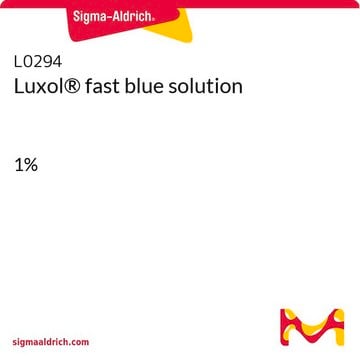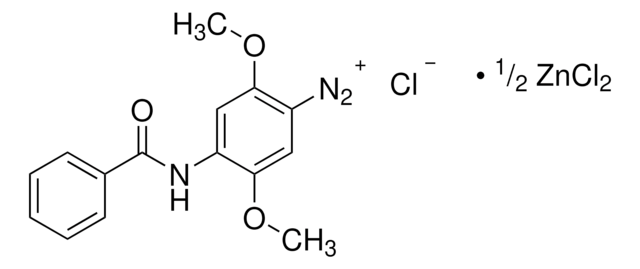A1091
Azocarmine G
Powder
Synonym(s):
Acid Red 101, Rosinduline
About This Item
Recommended Products
product name
Azocarmine G,
form
powder
Quality Level
color
dark red
solubility
water: 1 mg/mL, clear, red
ε (extinction coefficient)
210-255 at 510-523 nm in water
application(s)
diagnostic assay manufacturing
hematology
histology
storage temp.
room temp
SMILES string
[Na+].[O-]S(=O)(=O)c1ccc(Nc2cc3[n+](-c4ccccc4)c5ccccc5nc3c6ccc(cc26)S([O-])(=O)=O)cc1
InChI
1S/C28H19N3O6S2.Na/c32-38(33,34)20-12-10-18(11-13-20)29-25-17-27-28(22-15-14-21(16-23(22)25)39(35,36)37)30-24-8-4-5-9-26(24)31(27)19-6-2-1-3-7-19;/h1-17H,(H2,32,33,34,35,36,37);/q;+1/p-1
InChI key
LUERODMRBLNCFK-UHFFFAOYSA-M
Looking for similar products? Visit Product Comparison Guide
Related Categories
General description
Application
It may be also be used as a reference standard in the determination of azocarmine G in food products and beverages using high performance liquid chromatography coupled with diode array detector (HPLC-DAD).
Storage Class Code
11 - Combustible Solids
WGK
WGK 3
Flash Point(F)
Not applicable
Flash Point(C)
Not applicable
Personal Protective Equipment
Choose from one of the most recent versions:
Already Own This Product?
Find documentation for the products that you have recently purchased in the Document Library.
Customers Also Viewed
Our team of scientists has experience in all areas of research including Life Science, Material Science, Chemical Synthesis, Chromatography, Analytical and many others.
Contact Technical Service










